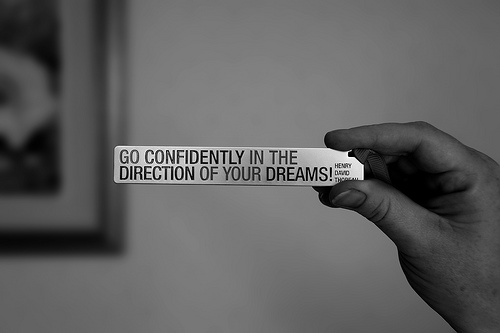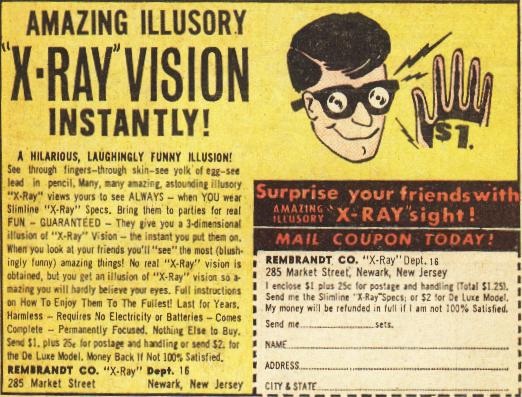
Finding a passion in life is one of the most stressful endeavours a person can embark upon.
I know for myself, it has been a never ending battle that has never shown anything but glimmers at to what my future might hold.
With a background in personal development, and half a lifetime of reading, watching, and learning from people who have mastered some aspect of their life and turned it into a long lasting career that they are passionate about, I always felt like something was missing, why couldn’t I find something that I loved more than anything and drove myself to do each day?
I have read countless books, blog posts, essays, and articles on this subject matter and have only grown tired of the rehashed responses telling you to keep trying different things until something sticks and then go full tilt once its glued to your soul.
I recently stumbled across a post on metafilter that raised some interesting notions about the endless struggle to find a passion, and instead advocated that one would be wasting their time, or even doing themselves a disservice if they spend an inordinate amount of time trying to find their passion, or even pursue it once they discover it.
I am curious to see your insights on this topic and welcome any pending commentary either directly on this post or via email.
Is there a difference between “discover your passion” and “discover what you want to do”?
I ask because I hear people talk about their Passion (with a capital P), as if everyone has one whether they know it or not. As it it’s a special glowing ball inside each of us. Yet I see no evidence that this ball necessarily exists.
To me, it’s more likely that we have things we like and things we dislike. A like becomes a passion when it repeats with regularity. For instance, I like peaches, but I don’t constantly crave them. So I wouldn’t call peaches a passion. On the other hand, whenever I see a book, I want to read it. I like reading… I like reading… I like reading… So I’d call reading a passion.
Is there anything like this for you, even if it’s something “stupid” (e.g. watching TV or eating poptarts)? If so, that a passion for you. If it repeats with great rapidity (and if the urge is very strong), then it’s an obsession. (I can’t keep my hands off my iPod. I think about it all the time. If I lose it, I panic.)
You don’t get to chose your passions. Since passions are just intense likings, choosing a passion would be like choosing to like eating eggplant. You either like eating eggplant or you don’t. Perhaps, if you don’t like it, you can learn to like it. But RIGHT NOW, you either like it or you don’t.
I’ve met some people who don’t seem to have any strong passions. Some admit to this. They certainly have likes and dislikes, but nothing specific crops up over and over. In fact, some people dislike anything that repeats too often (you could say such people have a passion for novelty). Other people DO have passions (defined as I’ve done so, above), but they don’t think of them as such. For many people, their passion is other people: passion for their kids, passion for their families, passion for helping others in need, etc….
Many people THINK they’ve discovered a passion when if fact they’ve only found a surface activity that lays atop their real passion. For instance, I love working in the theatre. At the risk of sounding holier-than-thou, I believe my passion is pretty “pure.” In other words, my passion for theatre doesn’t hide a deeper passion. I love theatre because I’m fascinated by the specific mechanics of telling stories on stage. When I’m not rehearsing a play, I will choose to read a book about theatre mechanics just for fun (for another dose of my obsession).
I’ve met others like me, but I meet far more theatre people who seem to be USING theatre to feed some deeper passion. (Please note that I’m NOT saying that there’s anything wrong with this or that I’m better than these people. I believe neither of those things. And there are plenty of other activities — just not theatre — that I use as tools to feed deeper passions.) Such people may be into theatre because they love attention and praise; they may love belonging to an open-minded group (many “misfits” find their way into theatre in high school and stay because they love belonging to such an accepting culture); they may even be operating on autopilot, doing theatre because for whatever reason, they got into it when they were younger and it never occurs to them to quit. (They probably enjoy having mastered something.)
I think it’s useful to delve into your psychology and ask yourself WHY you like what you like. Sometimes (as with me and theatre), the answer might be “because I simply love the activity.” (How do you know if this is true? Try mentally removing orbiting aspects of the activity: would I still want to direct plays if no one saw them? would I still want to direct plays if I could only work with bad actors? Would I still want to direct plays if I hated the results? Would I still want to direct plays if I always got bad reviews? etc. For me, though I wouldn’t enjoy the activity as much in these cases, I’d still want to do it.)
This is useful because if you learn what your TRUE passion is (the underlying one, if there is one), you may be able to change your life for the better. You may be able to say, “Wow! It’s not theatre I like, it’s collaboration! Maybe I instead of continuing in theatre, I should look into all sorts of collaborative activities and get into the one that’s the MOST collaborative.”
Such psychological delving may also help you deal with a crisis: “Oh no! I’ve lost my voice. I can’t act anymore. Wait a minute: it’s not specifically theatre that I like, it’s storytelling! I could write a novel.”
There’s also nothing wrong (and a lot right) with realizing, “I love attention and praise, so theatre is a great activity for me.” In all of these cases, you’ll have learned something about yourself.
Once you know your passion, you will be tempted to ask — as you did — “How can I turn this into a career?” I think that’s the wrong question. I don’t think it’s totally wrong. I just think it’s too specific. Instead, I recommend you ask yourself this: “How can I best arrange my life so that I can spend the most time engaging in my passion IN ITS PUREST POSSIBLE FORM and derive the least amount of pain doing non-passion activities?”
I am a director, but I’m not a working (as in paid) director. To pay my rent, I have a “day job.” I COULD work as a director, but I’d have to direct plays that I don’t want to direct. For some people, that would be fine. For me, it’s not a good trade off. I’ll be more happy with the day job and the ability to direct whatever I want — forgoing pay. It took me a while to come up with that “formula,” and it’s a personal one. Mine won’t necessarily work for you.
(If you realize you’re like me, find the least painful day job you can, getting yourself training if you have to. I actually like my day job. And I continually work to make it better and more interesting. The cliche of waiting tables to support your passion isn’t a necessity. If you commit to the idea of having a day job — I’ll likely have one for the rest of my life — it behooves you to make it a good one. Or at least the least painful one you can find.)
I see a lot of people working REALLY hard to make their passion into a job, and — tragically — when they finally make it happen, they don’t enjoy the passion any more. (E.g. a lot of working actors, who got into the business to play Shakespeare or Chekhov, spend most of their time acting in commercials.) If this happens, it’s really worthwhile to do some soul searching. Would I be happier with a day job? Am I happy doing a compromised version of my passion? If I AM happy doing a compromised version of my passion, does that (perhaps) mean that what I thought was my passion wasn’t really my passion? (“Hmm. I thought I wanted to act, but in order to do theatre for a living, I’ve had to become a producer. And — hey — I like it. Maybe acting isn’t my real passion. Maybe my real passion is being a key part of a big project.”)
I am NOT saying there’s anything wrong with figuring out a way to do your passion for pay. Often, that’s a great way to spend most of your time doing your passion. Just make sure that if you’re doing your passion as a job, it’s really your passion that you’re doing and not a perverted version of it that will fail to make you happy.
So, go through this thought process:
1. I’ve identified my passion as X. I am now going to define X as fully as possible. For X to be X, it MUST include A and B. C is optional. It can’t include D.
2. I’ve realized that I won’t be happy unless I’m doing X for a living.
3. Are there any jobs that will allow me to do X as I’ve defined it? (Or that will let me gradually work towards a pure version of X?)
4. If not, then I need to either brainstorm other ways I could be happy (compromised X? doing X as a hobby?) or resign myself to unhappiness.
5. If so, then I need to make sure that I can live with non-X aspects of the job. (Wow! I can do full time, paid theatre, but I’d have to work with the dreaded Mr. Y!)
Finally: I’ve noticed that people (myself included) have a strong urge to classify themselves. People REALLY want to be able to say, “I’m a director!” “I’m an engineer!” “My passion is gourmet cooking!”
There’s nothing wrong with that drive, but putting yourself in a category is not the same thing as actually being in that category. In fact, categorizing yourself — since it’s so final — is a good way to thwart any attempt to discover your actual passions. Once you say, “I’m a director,” it’s hard to think, “Wait a minute: is it actually directing that I like or some other activity that directing helps me achieve?” Which is why, at the start of this long post, I suggested you de-romanticize the whole thing and, instead, think about what you like and dislike, rather than trying to pin down your Passion.
Maybe you don’t have a Passion. Maybe you have many likes — you like playing in the sun; you like watching movies; you like hanging out with friends… If so, you’ll be much happier if you arrange your life to maximize your chances to do these activities than if you expend a ton of energy categorizing yourself.
Cheers
Gabriel



